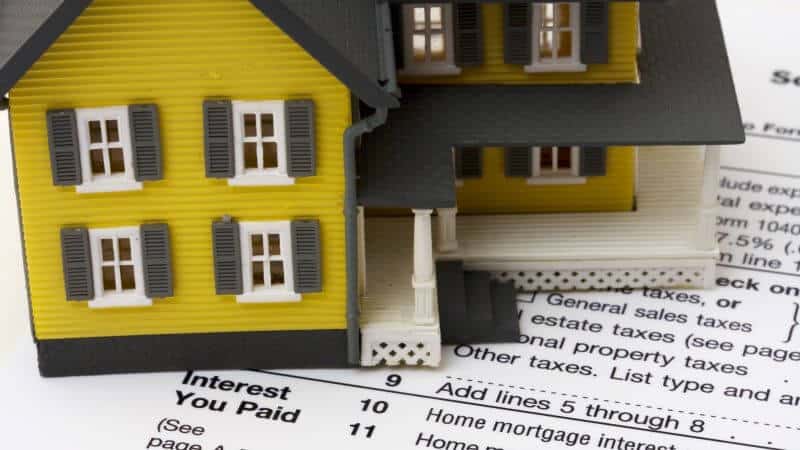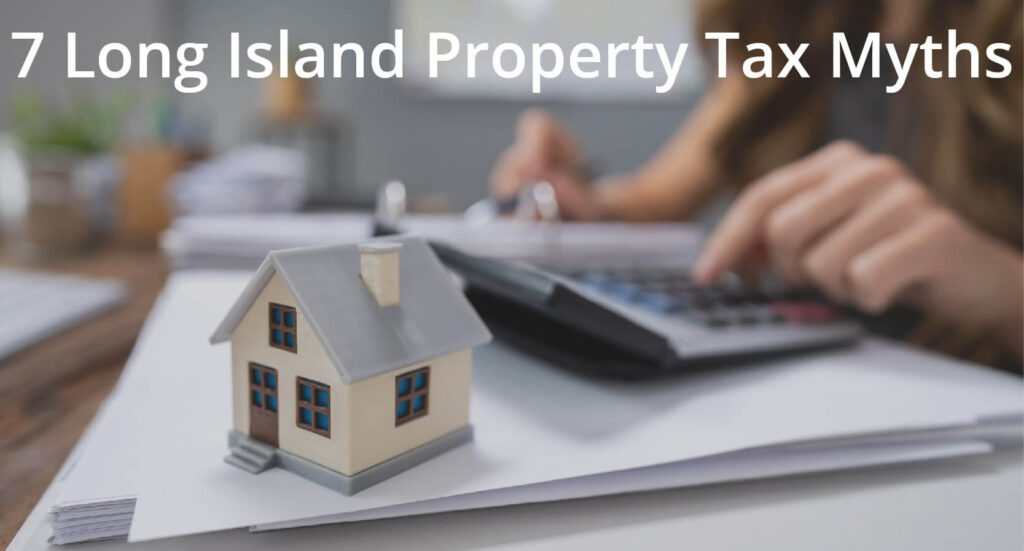Getting a notice every year that your property taxes are going up can be frustrating. What’s more, researching online to see how property taxes work and if you can lower your property taxes can often be confusing. There are many property tax myths circulating the internet. The tremendous amount of tax information on the web can make it hard to distinguish between reliable advice and what’s wholly illegitimate or even harmful to your wallet. One of the most significant issues with misinformation is the complex-sounding terms associated with the topic, which makes it challenging to understand tax-related issues. If you have property tax-related questions, read on to distinguish myths and misconceptions you might have heard from the facts.
Myth #1: The State of New York Determines Your Property Taxes
This statement is false. Your property taxes help fund road maintenance, schools, and police and fire departments within your community. The more facilities, police officers and fireman, and better equipment you have, the more funding your community will need. In New York, municipal governments determine your property taxes, not the state. Local governments assess tax rates by dividing the total amount of money that has to be raised from the property tax (the tax levy) by the taxable assessed value of real property in the municipality.
Myth #2: The Local Assessor’s Office Determines Property Taxes
This myth is false. Your property taxes are not determined by the assessor’s office in your township. The job of the assessor is to determine the market value of your property. How does your local assessor come up with a number? The market value assessment of a property depends on where you live in New York. For example, Nassau County and New York City will assess properties at total market value. However, in Suffolk County and many other counties within the Empire State, property value is estimated at a uniform percentage of market value.

Myth #3: Long Island Taxes Are High Because of High Assessments
The answer is neither true nor false. Although a high assessment of your property may contribute to a high property tax bill, your town’s tax rate determines how much you will pay in property taxes. Consider the following hypothetical example. If property A was worth $500,000 and the tax rate in town A was 2%, then the tax bill would be for $10,000. However, if property B was worth $320,000 and the tax rate in town B jumped from 2 to 3%, the owner would be paying a $9,600 tax bill. Although there is an almost $200,000 market value contrast between both homes, there is only a $400 difference in what each property owner pays in taxes. You can have a high tax bill, even if your property has a low assessed value, if the county in which your property is located has a high tax rate.
Myth #4: If my assessment goes down, so will my property taxes.
Unfortunately, this is not necessarily true. Let’s say that your town sees an overall decrease in home values. If your town’s tax levy remains the same, you will still owe the same amount of taxes. Using the same reasoning, if your town’s home values overall increase, but the tax levy remains the same, your taxes won’t go up.
Myth #5: There is no property tax relief available for Long Islanders
There are exemptions available to help lower a portion of your property taxes, but not everyone qualifies. Common property tax exemptions include a senior citizens exemption, a veteran’s exemption, and exemption for persons with disabilities. Most exemptions are offered by local option of the taxing jurisdiction. You can contact your town tax office to determine what exemptions are available in your community.

Myth #6: I Don’t Have Any Control Over My Property Tax Bill
Believe it or not, your property’s assessment is actually the one factor you have some control of when it comes to your property tax bill. First of all, making improvements to your property can affect your assessment. So, if you want to keep your assessment down, you should limit the upgrades you make on your property.
Secondly, you can file a tax grievance if you live in Nassau or Suffolk County and feel that you’re overpaying in property taxes.
What is a tax grievance? When the municipality you reside in assesses your property for more than it’s worth, you have the right to request a tax grievance, which is an appeal of your property value’s assessment.
You can either file your own tax grievance or hire a tax grievance company to act on your behalf. If you hire a tax grievance company, they will determine if your municipality has over-assessed your property or that your taxes are higher than they should be. In that case, the company will begin the tax reduction process for you. However, if the tax grievance company cannot determine that your property has been over-assessed, you will be informed of no viable tax grievance case.
Myth #7: I Can Only Grieve My Property Taxes Once
False. You can file a tax grievance every year. You may or may not get a reduction, but according to New York State law, you’ll never have your assessment increased as a result of filing a grievance. If your grievance fails in one tax year, it doesn’t mean you won’t be successful the following year. In fact, it is possible to get a reduction multiple years in a row.
Need Help with a Property Tax Grievance?
If you’re a homeowner in Suffolk or Nassau County and want assistance filing a property tax grievance, give us a call in Nassau County: (516) 342-4849 or Suffolk County: (631) 302-1940 or apply online here.

